UCF researchers could develop the cure for hydrogen leak that grounded Artemis 1
TAMPA, Fla. - Scientists at the University of Central Florida are working to create a composite material that they hope will prevent scrubs like the one that happened Sept. 3 on the Artemis launchpad because of a hydrogen leak.
"This is one of the biggest projects I have ever had before," said UCF aerospace engineering professor Dr. Jan Gou.
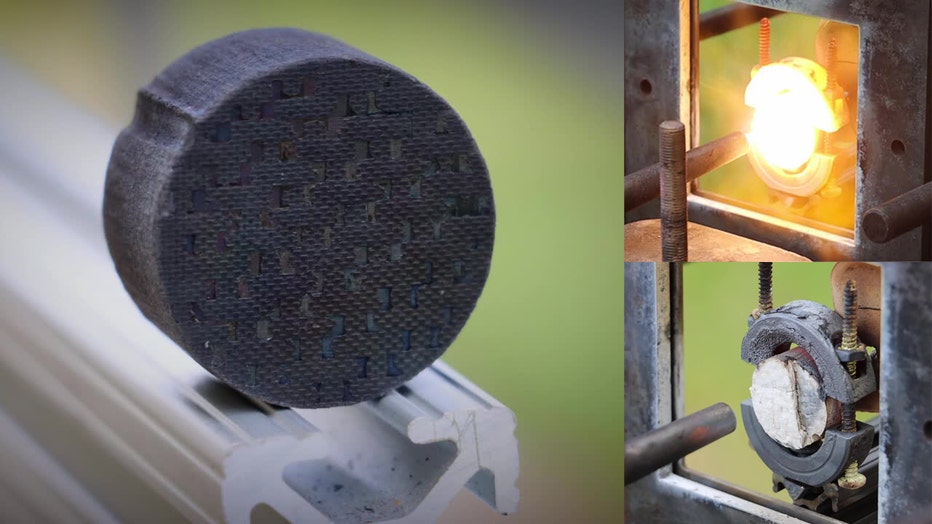
Matreial being tested at UCF to prevent future hydrogen leak problems on rockets
Students are working to cure composite tile - similar to what would be used on a space rocket - by subjecting it to pressure 17 times higher than sea level, and 2,000 degrees Fahrenheit.
"What we are left with is a ceramic composite able to withstand some really high temperatures," said Chris Varela, a UCF grad student who is working on the project.
The team uses acetylene torches to test whether the composite can withstand the high temperatures required for spaceflight.
"They are traditionally used for cutting steel," said student Richard Chapman. "Heat it up to a temperature that is similar to what it would see in a hydrogen combustion turbine."

Previous: Stubborn fuel leak grounds Artemis 1
NASA scrubbed the launch of Artemis 1 again on Saturday due to a fuel leak.
MORE: NASA again troubleshooting fuel leak ahead of moon rocket launch attempt
The less heat that gets through, the better the sample is working, and the closer they are to stopping leaks that can scrub a mission that has worldwide attention.
"This is very good research that has the potential to really advance society and potentially save lives," said Chapman.
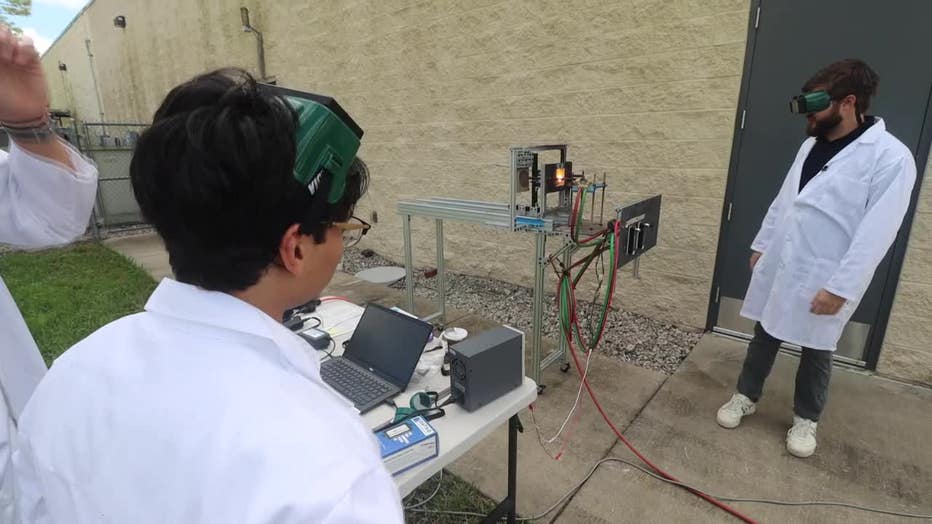
During the experiment viewed by FOX 13, the material that was exposed to the high heat appeared to withstand it.
"We are measuring how much heat gets through the sample and into the back," said Varela.

Apollo engineer 'can hardly wait' to see Artemis 1 go to the moon
As NASA plans to take the next big leap into space during the overnight hours, engineers were busy troubleshooting a fuel leak found in the final hours before launch. FOX 13’s Craig Patrick spoke with Apollo engineer Ken Poimboeuf about the launch 60 years ago and how its lessons apply today.
WATCH: Apollo engineer recalls Saturn V hiccups, 'can hardly wait' for Artemis 1 launch
The lab recently won a grant from the Department of Energy that will allow them to use this technology to study not just rocket science, but the future of hydrogen power."
"Hydrogen fuel is pretty much the future. It's clean. The only emissions are just water," said Chapman. "It's a very important fuel to be researching. These turbines are very important also for aerospace, but also for, you know, powering our homes, for powering our vehicles."
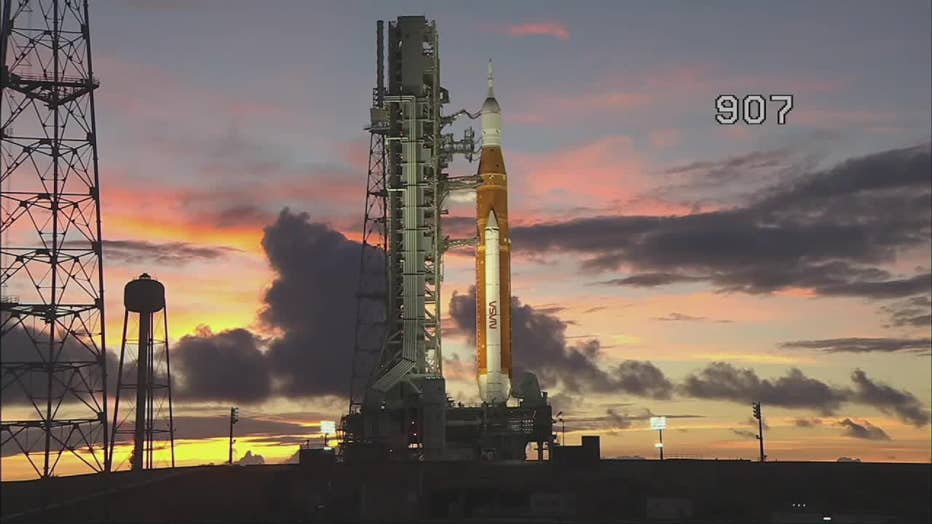
MORE: What are all those black and white dots on NASA's Artemis I SLS rocket?
Super slo-mo HD video reviewed by the tea afterwards shows how every detail, on ships with millions of parts, are the difference between success and failure.
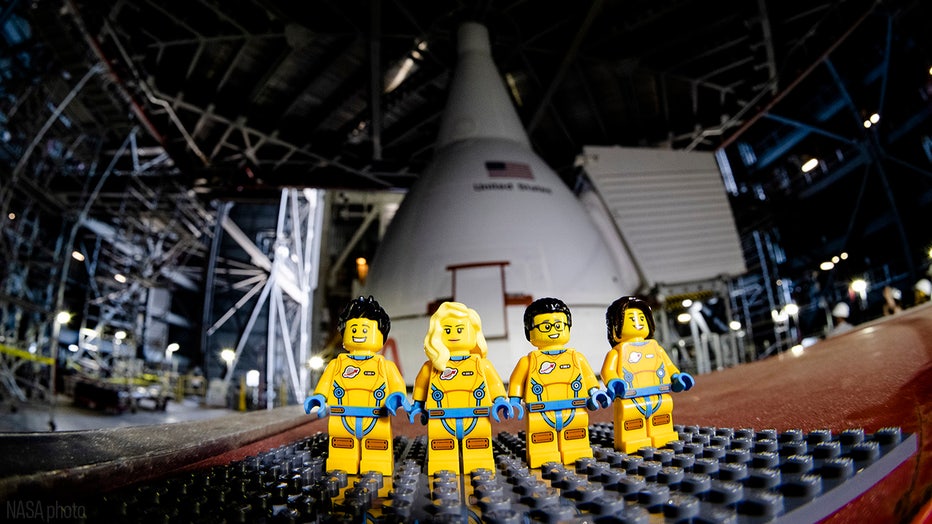
Kyle, Julia, Sebastian, and Kate are flying aboard the Orion capsule for Artemis I.(NASA photo)
MORE: Artemis I’s LEGO astronauts: On a mission to inspire
"We all have the shared drive to learn new things and continue to progress not only our own personal knowledge, but the knowledge of society," said Chapman.
Along with UCF, the University of Miami is involved, as they work to test very high temperature ceramics that can be used to coat the inner portion of the chambers that contain hydrogen.
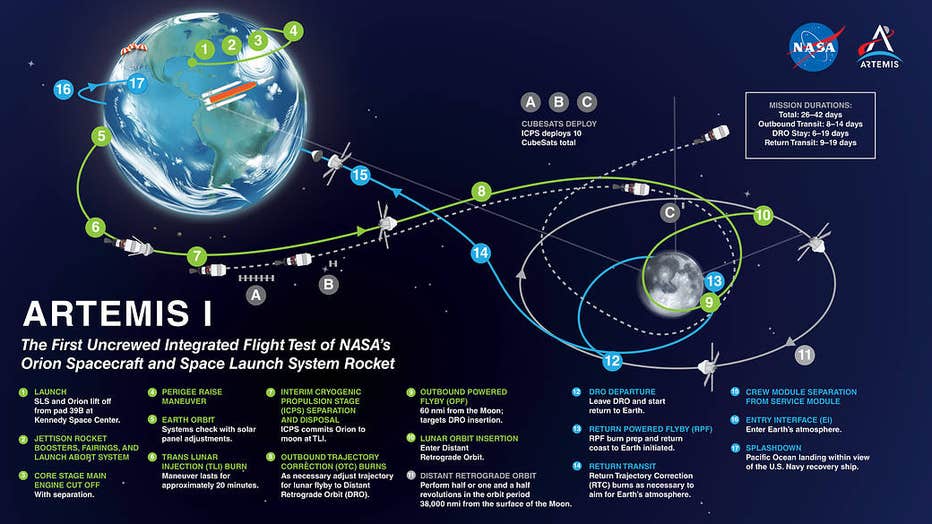
MORE: These recycled space shuttle parts are now powering Artemis I to space
This is expected to be a two-year project.
"You're here for science, you're here to learn," said Varela. "You're here to find out new things that you didn't know before, to apply the knowledge that you have to discover something new."



